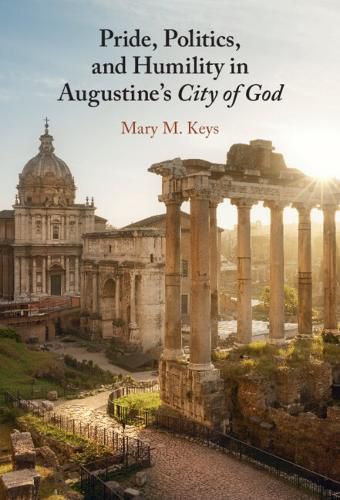Readings Newsletter
Become a Readings Member to make your shopping experience even easier.
Sign in or sign up for free!
You’re not far away from qualifying for FREE standard shipping within Australia
You’ve qualified for FREE standard shipping within Australia
The cart is loading…






This book is the first to interpret and reflect on Augustine’s seminal argument concerning humility and pride, especially in politics and philosophy, in The City of God. Mary Keys shows how contemporary readers have much to gain from engaging Augustine’s lengthy argument on behalf of virtuous humility. She also demonstrates how a deeper understanding of the classical and Christian philosophical-rhetorical modes of discourse in The City of God enables readers to appreciate and evaluate Augustine’s nuanced case for humility in politics, philosophy, and religion. Comprised of a series of interpretive essays and commentaries following Augustine’s own order of segments and themes in The City of God, Keys’ volume unpacks the author’s complex text and elucidates its challenge, meaning, and importance for contemporary readers. It also illuminates a central, yet easily underestimated theme with perennial relevance in a classic work of political thought and religion.
$9.00 standard shipping within Australia
FREE standard shipping within Australia for orders over $100.00
Express & International shipping calculated at checkout
This book is the first to interpret and reflect on Augustine’s seminal argument concerning humility and pride, especially in politics and philosophy, in The City of God. Mary Keys shows how contemporary readers have much to gain from engaging Augustine’s lengthy argument on behalf of virtuous humility. She also demonstrates how a deeper understanding of the classical and Christian philosophical-rhetorical modes of discourse in The City of God enables readers to appreciate and evaluate Augustine’s nuanced case for humility in politics, philosophy, and religion. Comprised of a series of interpretive essays and commentaries following Augustine’s own order of segments and themes in The City of God, Keys’ volume unpacks the author’s complex text and elucidates its challenge, meaning, and importance for contemporary readers. It also illuminates a central, yet easily underestimated theme with perennial relevance in a classic work of political thought and religion.